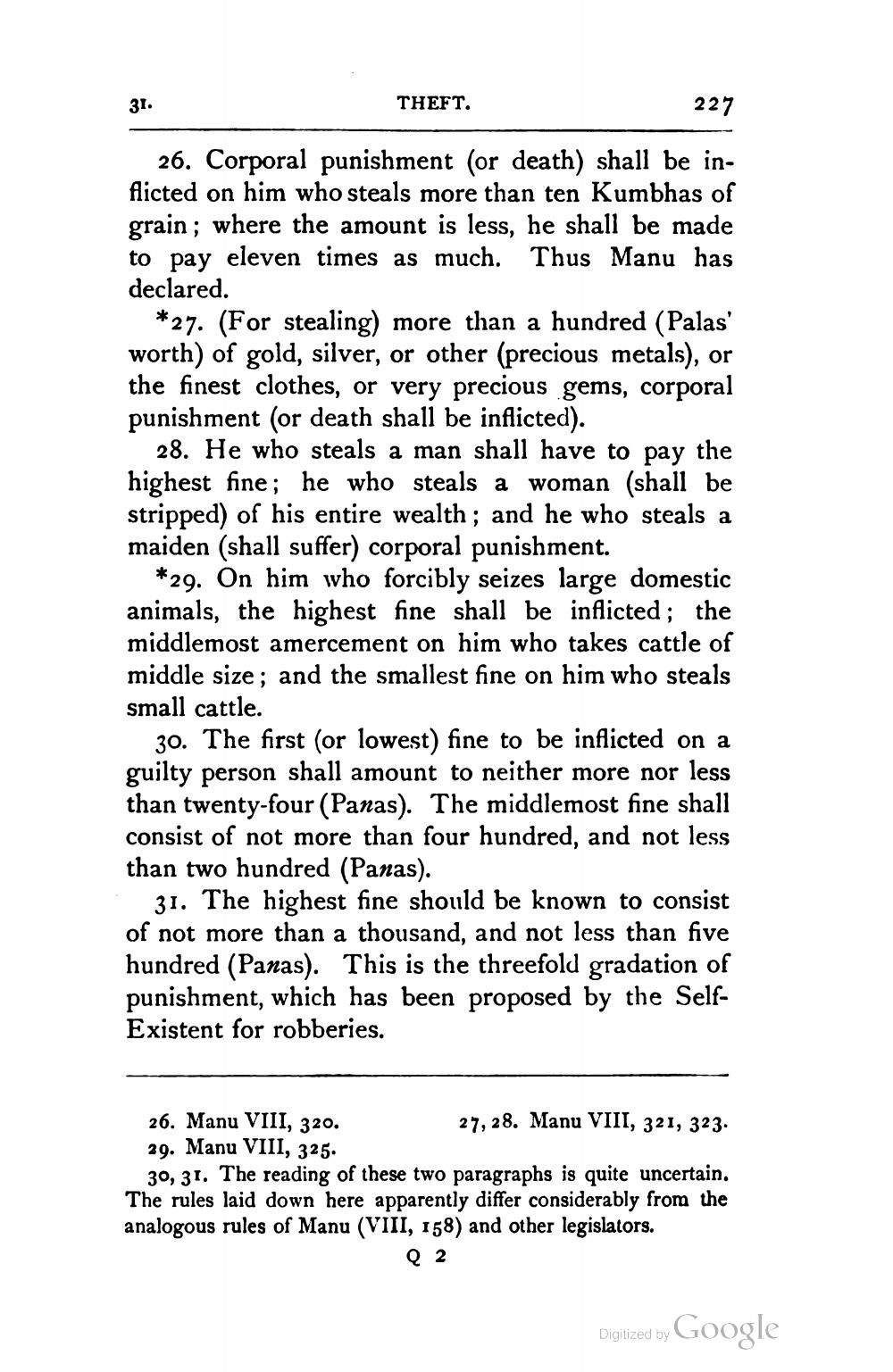________________
THEFT.
227
26. Corporal punishment (or death) shall be inflicted on him who steals more than ten Kumbhas of grain; where the amount is less, he shall be made to pay eleven times as much. Thus Manu has declared.
*27. (For stealing) more than a hundred (Palas' worth) of gold, silver, or other (precious metals), or the finest clothes, or very precious gems, corporal punishment (or death shall be inflicted).
28. He who steals a man shall have to pay the highest fine; he who steals a woman (shall be stripped) of his entire wealth ; and he who steals a maiden (shall suffer) corporal punishment.
*29. On him who forcibly seizes large domestic animals, the highest fine shall be inflicted; the middlemost amercement on him who takes cattle of middle size; and the smallest fine on him who steals small cattle.
30. The first (or lowest) fine to be inflicted on a guilty person shall amount to neither more nor less than twenty-four (Panas). The middlemost fine shall consist of not more than four hundred, and not less than two hundred (Panas).
31. The highest fine should be known to consist of not more than a thousand, and not less than five hundred (Panas). This is the threefold gradation of punishment, which has been proposed by the SelfExistent for robberies.
26. Manu VIII, 320.
27, 28. Manu VIII, 321, 323. 29. Manu VIII, 325.
30, 31. The reading of these two paragraphs is quite uncertain. The rules laid down here apparently differ considerably from the analogous rules of Manu (VIII, 158) and other legislators.
Q2
Digitized by Google




